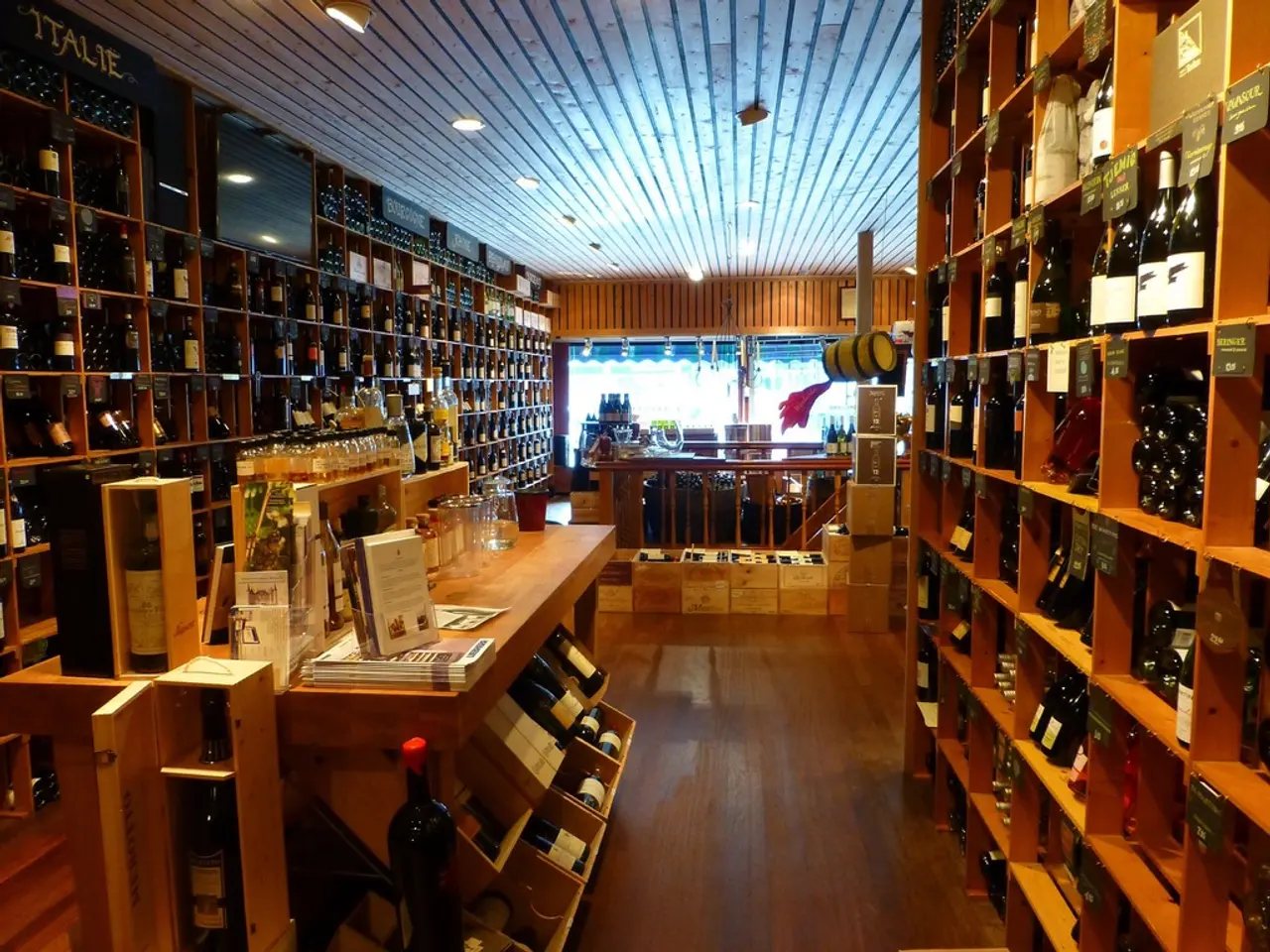Bottles Constructed from Glass, Used in Commerce and Household Items
The world of retail is constantly evolving, and in Australia, one area that is seeing significant growth is the use of glass packaging. Innovations in glass production and recycling processes are enhancing the efficiency and appeal of glass packaging, making it an attractive choice for retailers seeking to align with sustainability goals and premium market segments.
The Benefits of Glass Packaging
The benefits of using glass bottles in retail are numerous. Glass's recyclability and sustainability credentials are unmatched. It can be recycled infinitely without quality loss, with recycled glass reducing energy consumption by up to 30% and carbon emissions significantly.
Moreover, glass's inert nature and excellent barrier properties maintain product taste, aroma, and quality without chemical interaction. This is crucial for beverages, pharmaceuticals, and cosmetics. Glass packaging is also associated with high quality and safety, important in the alcoholic beverages sector and for cosmetics and pharmaceuticals.
Lightweight innovations in glass bottles are reducing environmental impact while lowering transportation costs. Australian wineries are already adopting these, with the average weight of a 750ml bottle being less than 420 grams. This not only benefits the environment but also reduces costs associated with transportation.
Applications in Australia
Glass packaging is widely used in the wine industry, notably in the Margaret River wine region, focusing on lightweight glass to reduce carbon footprint. There is also a growing use in the cosmetics and pharmaceuticals sectors, leveraging glass’s quality and protective qualities. The potential for glass packaging in the food and beverage sectors emphasizing sustainability and premium packaging is significant.
Finding Suitable Glass Packaging Providers
Retailers can find suitable glass packaging providers by focusing on those offering lightweight, recyclable glass solutions that support circular economy models and sector-specific needs. Providers such as Invopak (UK example) offer a range of glass containers suitable for food, beverage, cosmetics, and lab uses.
Engaging with local industry bodies and initiatives, such as the Margaret River Wine Association Lightweight Glass Packaging Charter, can help identify regional suppliers committed to sustainability standards. Retailers can also leverage market reports and industry analyses to identify manufacturers offering innovations like lightweight designs, customizable aesthetics, and durable containers with consistent supply capabilities aimed at retail and bulk sectors.
The Future of Glass Packaging in Retail
By choosing glass, retailers can demonstrate their commitment to environmental responsibility. Glass packaging conveys a sense of quality and reliability, and the potential for differentiation and consumer appeal is immense. With the right glass packaging partner, businesses can unlock new opportunities to captivate their audience and build a lasting legacy of quality and sustainability.
Glass packaging is versatile, used across various retail sectors including beverages, personal care, and speciality goods. It can be embossed with logos or crafted to bespoke designs, and retailers can customize the shape and design of glass bottles and jars to reflect their brand identity.
Apothecary jars provide an air of sophistication and are perfect for preserving the efficacy of products like essential oils, bath salts, and herbal remedies. Glass bottles and jars cater to the diverse needs of the retail sector, with providers like glass bottles Australia, apothecary jars Australia, and amber glass bottles available.
In Australia, retailers can access a wide range of glass packaging solutions from providers like glass bottles Australia. Glass is 100% recyclable, aligning with consumer demand for environmentally responsible products. Quality glass packaging represents an investment in product integrity, brand elevation, and environmental stewardship for retailers.
- The increasing use of glass packaging in retail is driven by its unmatched recyclability and sustainability credentials, reducing energy consumption and carbon emissions.
- Innovations in glass production and recycling processes are enhancing the efficiency and appeal of glass packaging, making it an attractive choice for retailers seeking to align with sustainability goals and premium market segments.
- The wine industry, particularly in the Margaret River wine region, is adopting lightweight glass to reduce carbon footprint, while cosmetics and pharmaceuticals sectors are leveraging glass's quality and protective properties.
- Retailers can find providers offering lightweight, recyclable glass solutions that support circular economy models and sector-specific needs, such as Invopak in the UK or glass bottles Australia in Australia.
- With the right glass packaging partner, businesses can unlock new opportunities to captivate their audience and build a lasting legacy of quality and sustainability.
- Glass packaging can be customized to reflect brand identity, with various options like apothecary jars, amber glass bottles, and more available from providers like apothecary jars Australia.
- Quality glass packaging represents an investment in product integrity, brand elevation, and environmental stewardship for retailers, aligning with consumer demand for environmentally responsible products.




